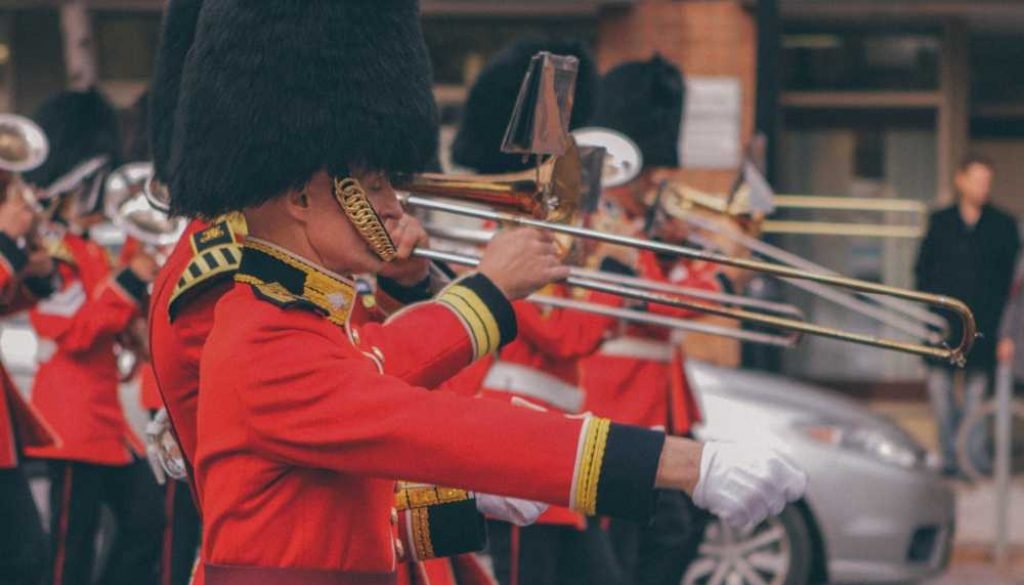Guide to The Culture of Canada
As Canada is a member of the commonwealth, it’s only natural to assume the culture in Canada will be similar to Englands. However, as the largest country in North America, it has been explored over a long period of time and therefore has a varied history of colonisation.
Canada’s culture is influenced heavily by the British and the French as well as retaining a lot of the culture from indigenous people. These influences mix together to create an incredibly unique country. It is not similar to the United States or the UK, it is completely its own beast.
What is the Canadian Culture?
“Culture” is an obviously broad category that can include any number of topics depending on who’s setting the terms. The culture of Canada has been primarily influenced by the various European cultures and traditions of its constituent nationalities, particularly British and French culture. There are also influences from the cultures of its indigenous peoples, and from the neighbouring USA.
As an increasingly multicultural nation, culture in Canada today is very different from historical culture. Canadian society and culture has changed and evolved due to this multiculturalism. The cultural identity of the nation has taken on a number of different ideas and attitudes due to this increased multiculturalism.
Geography and Currencies
Canada is a country in the northern half of North America. Its territory extends across the width of the continent, and it is therefore flanked by the Pacific Ocean to its west and the Atlantic Ocean to its east. To the north, Canada is bordered by the Arctic Ocean, and to the south by the United States. By its surface area, Canada is the second largest country in the world.
The Capital is Ottawa with the main cities being Toronto, Montréal and Vancouver. The official languages of the country are both English and French. Therefore the country is split into English speaking and French Canadian states.
The local currency is the Canadian Dollar (CAD.) It uses the same dollar symbol as the USA and is a weaker currency than both the Pound and the United States dollar.
Language in Canada
As mentioned before, the two official languages in Canada are English and French, with English having the vast majority of speakers at around 60%. This is due to the colonial history of the country having issues with Catholic and Protestant populations.
Only a portion of Canadians are bi-lingual, and it is not a requirement to be able to communicate fluently in both English and French. French-speaking Canadians, known as French-Canadians or Francophones, are a much smaller percentage of the population, and more than 90% of them live in Quebec — the only province where French is the language of daily life.
Due to Canada’s historically welcoming attitude to immigrants, with reasonable populations speaking Chinese, Punjabi, Spanish, German, and Italian, amongst others.
There are the remaining aboriginal languages spoken by the indigenous people of Canada. Sadly, the majority of these languages are not expected to be able to survive for more than a few generations. This is due to the fact that aboriginal languages of Canada — much like the aboriginal people themselves — were almost entirely wiped out by European settlers.
Food Culture in Canada
Similar to England, it is difficult to identify a particular cuisine and refer to it as a “Canadian cuisine.” This is because the multicultural and multi-ethnic composition of the country has resulted in a wide range of foods and varying preparation techniques.
When people think of foods in Canada, they mostly think of maple syrup and Canadian bacon. Although these foods are uniquely Canadian, they are just but a few of the delicacies available in the country. The culinary styles of the country may be unique but it is influenced by the styles in Asia, Europe, the United States, and the Middle East.
One food that is considered to be truly Canadian is “poutine”. The original form was invented in the 1950s in Quebec and consist of French fries smothered in cheese curds and gravy. The recipe has since changed and adopted several ways of preparation to vary taste.
Sushi pizza is common in the city of Toronto although neither pizza nor sushi are native Canadian cuisines; the combination of the two to form a single dish was invented in the city. Similar to the British Tikka Masala, it is not entirely unique to that nation but is definitely a British creation.
Sports and Recreation
Many countries these days are defined by their taste in sport England and football culture are so incredibly linked it’s hard to imagine it without the sport. It defines many people’s weekends and mid-week afternoons and forms a part of many citizens life rituals. This is the same in Canada with ice hockey.
Ice hockey is so prevalent in the country that it is simply referred to as “hockey”. It is Canada’s most successful sports in international competitions. Many children learn to play hockey at a very young age and competitions are held frequently, including in high schools and colleges.
Canadian Manners and Etiquette
Canadians are generally polite, tolerant and relatively informal. As with any large country, there is a great amount of variation in customs and etiquette from one region to the next. However, Canadians are generally very polite, and it is important to remember your manners if you want to get on well with people.
The most obvious difference is in the province of Quebec, which has more French influence than British. As a result, it is not uncommon for people to greet each other by kissing each other’s cheeks, left and right, rather than the handshake popular in the rest of the country.
Canada’s Art and Culture
Since the 1950s, there has been a stronger effort to create uniquely Canadian art, literature, and theatre. There are several programs that fund artists in Canada at all levels of government. The performing arts and other forms of “high culture” have all benefited. The Governor General’s Award is awarded to artists, musicians, writers and cultural performances annually.
Canada is home to a number of literary authors who produce work in either French or English. Some of Canada’s most famous authors include Margaret Atwood, Alice Munro, Yann Martel, Robert Munsch, Leonard Cohen and Timothy Findley.
Clothing
Canadian clothing is very much like that of the United States and most other western countries. The main thing to note is that it can get very, very cold in large parts of the country, with temperatures getting as low as -40C in some areas. So make sure you wrap up warm.
Business Culture
Although business culture can vary across regions in Canada, the ethos of business dealings tends to be fairly reciprocal. Therefore, it is essential to know the company with whom you are doing business and to understand their underlying ethos. For example, if you are dealing with Quebec businesses, academic titles are important, where the honorific ‘Monsieur’ or ‘Madame’ is used.
Canadians begin meetings with a minimal amount of small talk although one should expect to spend a few minutes exchanging pleasantries and the like.? In Quebec, there may be more time spent on relationship-building.
Punctuality is important and any issues that may arise should be discussed immediately with your business counterpart. Meetings are generally well-organized and adhere to time schedules. They tend to be informal and relaxed in manner, even if the subjects being discussed are serious. When meeting with Anglophones, meetings may seem more democratic as all participants will engage and contribute.
Dress codes may vary throughout regions, with some being less formal than others although smart dress is recommended. Business dress code consists of a fairly conventional tie and suit for males and smart dress or suit for females
Visit Canada Today
The country of Canada is incredibly welcoming to all tourists and visitors. Even with some cultural differences, they will be incredibly welcoming to you. If you’re looking to travel to Canada, getting a Canadian eTA as a British Citizen has never been easier. We can help you with the process and make sure your trip of a lifetime becomes a reality. Apply for your Canada eTA today!




